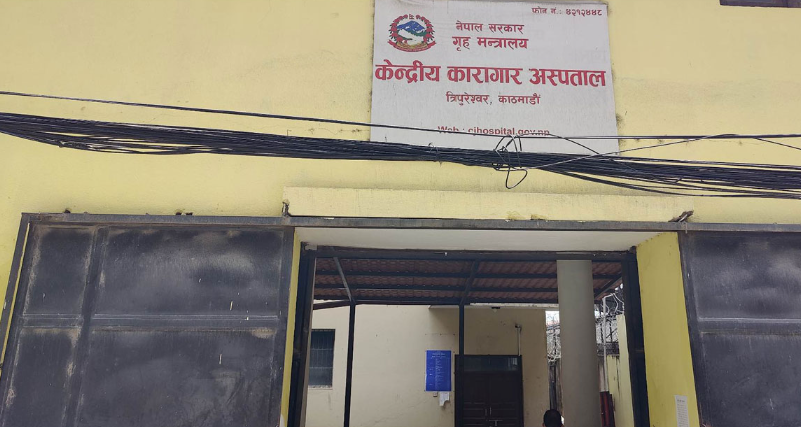
Kathmandu: The Central Prison Hospital has made improvements to ensure that prisoners do not die because they did not receive proper medical care. The hospital has made agreements with both government and private hospitals in Kathmandu to provide specialized and urgent medical services to inmates. There are now 23 health organizations involved, and nine main referral hospitals are prioritizing prisoner care.
Dr. Prakash Budhathoki, head of the Central Prison Hospital, explained that these agreements are meant to guarantee that prisoners receive the necessary treatment to prevent untimely deaths. Some of the main hospitals involved include Bir Hospital, Nepal Eye Hospital, Sahid Gangalal National Heart Center, Kanti Children’s Hospital, Paropakar Maternity and Women’s Hospital, and the Trauma Center. Additionally, agreements have been made with hospitals like Sukraraj Tropical and Communicable Disease Control Hospital, Mental Hospital, Bhaktapur Cancer Hospital’s Central Transfusion Service, National Public Health Laboratory, Shahid Dharmabhakta Human Organ Transplant Center, National Kidney Center, and Ayurveda Hospital for initial referrals.
If a patient needs specialized treatment or if no beds are available, the Central Prison Hospital will refer them to other institutions such as Manmohan Cardiothoracic Vascular and Transplant Center, Tribhuvan University Teaching Hospital, National Reference Laboratory, Anandaban Hospital, and BP Koirala Lions Centre for Ophthalmic Studies. If these hospitals also need to refer the patient further, they will be sent to BP Smriti Hospital, Sumeru Hospital, Spinal Injury Rehabilitation Center, and Orthopedic Hospital as the final options.
The Central Prison Hospital is working closely with these health institutions to improve the organization and efficiency of medical care for prisoners. Dr. Budhathoki has asked these institutions to inform them if there are any issues with prisoner treatment and has assured that the Prison Management Department will keep working to enhance healthcare facilities.
During a recent program, prisoners discussed their health issues. Nepal has 75 prisons and 200 correctional facilities with over 29,000 prisoners. According to Dr. Budhathoki, who is also a spokesperson for the Ministry of Health and Population, many prisoners suffer from conditions like high blood pressure, diabetes, high cholesterol, mental health problems, and ENT issues. There are 10 prisoners with cancer and nine with kidney diseases, and those with kidney problems are receiving dialysis.
FACEBOOK COMMENTS